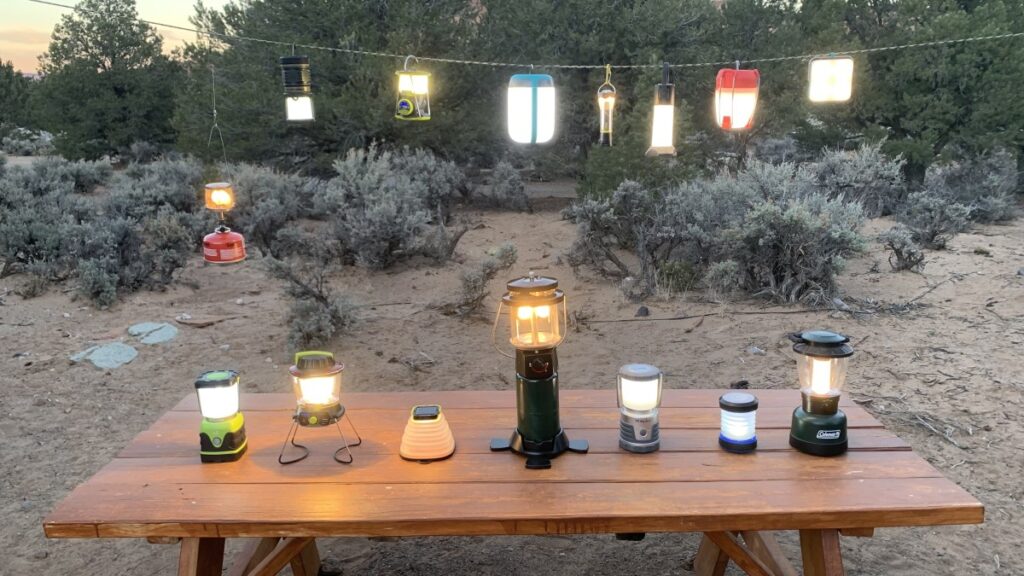Discover the Perfect Camping Lights for Your Journey
Camping is a beloved pastime that allows us to connect with nature, unwind, and create lasting memories. However, the importance of good lighting during camping trips cannot be overstated. The right camping light can significantly enhance your overall experience by ensuring safety, convenience, and comfort.
A well-lit campsite not only helps you navigate your surroundings in the dark but also deters potential wildlife encounters. Good lighting also enables you to perform essential tasks like cooking, setting up tents, and reading comfortably after sunset. With so many options available, it’s crucial to choose the best camping light to suit your specific needs.


Types of Camping Lights
There are three main types of camping lights: battery-operated, solar-powered, and propane camping lights. Each type has its unique features, advantages, and disadvantages.
Battery-Operated Camping Lights
Battery-operated camping lights are the most common and widely used type. They typically use AA or AAA batteries, while some models feature rechargeable lithium-ion batteries.
Pros:
Easy to use and replace batteries
Available in various sizes and designs
Can be extremely bright
Cons:
Batteries need to be replaced or recharged frequently
Can be less eco-friendly due to battery waste
Brightness may diminish as batteries drain
Solar-Powered Camping Lights
Solar-powered camping lights harness sunlight during the day to power the light at night. These lights typically come with a small solar panel and an internal rechargeable battery.
Pros:
Eco-friendly and sustainable energy source
No need to replace batteries
Low maintenance
Cons:
Dependent on sunlight for charging
May not be as bright as battery-operated lights
Charging can take several hours
Propane Camping Lights
Propane camping lights use fuel to generate light, often providing a warm, bright glow. They are typically larger and more durable than other types of lights.
Pros:
Long-lasting brightness
Not reliant on batteries or sunlight
Can double as a heat source
Cons:
Requires propane canisters for fuel
Heavier and less portable than other options
May pose a fire risk if not handled properly
Key Features to Look for When Buying a Camping Light
- Intensity and Brightness: Determine the amount of light you need for your specific camping activities.
- Battery Life: Choose a light that offers sufficient battery life for your trip duration.
- Range of Light: Consider how far the light needs to reach based on your campsite size and surroundings.
- Water Resistance: Opt for a light that can withstand rain or damp conditions.
- Modes of Operation: Look for lights with multiple modes, such as high, low, and SOS, to suit various situations.
- Beam Distance: Assess how far the light beam should travel to ensure adequate visibility.
Top Camping Light Models
Black Diamond Apollo Lantern: This battery-operated lantern offers 225 lumens of bright light and features a unique dimming function for customizable brightness. It has foldable legs for easy storage and transport, and its water-resistant design makes it suitable for various weather conditions. Price Range: $40-$50
Pros:
Adjustable brightness
Compact and portable design
Water-resistant
Cons:
Relatively short battery life
Requires frequent battery replacement
Goal Zero Lighthouse 400 Lantern: This solar-powered lantern features a built-in USB charging port for your devices and offers up to 48 hours of light on a single charge. With 400 lumens, it provides ample brightness for most campsite tasks. Price Range: $65-$75
Pros:
Solar-powered with USB charging option
Long battery life
360-degree lighting
Cons:
Charging may take time in low sunlight conditions
Slightly heavier than other options
Coleman Northstar Propane Lantern: This propane-powered lantern offers an impressive 1,500 lumens of light, making it one of the brightest options available. Its porcelain-coated ventilator helps prevent rust and corrosion, ensuring durability. Price Range: $45-$55
Pros:
Exceptionally bright
Durable construction
Dual-fuel compatibility
Cons:
Requires propane canisters
Heavier and bulkier than other options
Recommendations
When selecting the best camping light for your needs, consider factors such as trip duration, expected weather conditions, and intended activities. Battery-operated lights are ideal for short trips or those requiring intense brightness, while solar-powered lights are perfect for eco-conscious campers and longer trips. Propane lights are best suited for cold climates or base camps where portability is less critical.
In conclusion, choosing the right camping light can significantly impact your overall camping experience. By considering factors like brightness, battery life, and durability, you can make an informed decision based on your individual needs and preferences. Use this guide to explore the various types of camping lights available and find the perfect companion for your next outdoor adventure.
